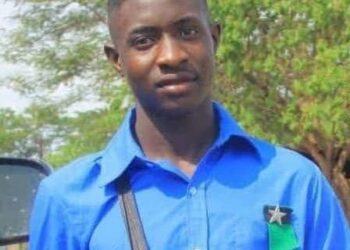The Church of England is being blamed by the sister of a 16-year-old boy who drowned while swimming naked at a Christian vacation camp in Zimbabwe that was managed by child ab_ser John Smyth. “The ab_ses committed by John Smyth were known to the Church.
They ought to have prevented him. “I believe my brother [Guide Nyachuru] would still be alive if they had stopped him,” Edith Nyachuru told the BBC.
In 1984, the British lawyer from Winchester, England, relocated to Zimbabwe with his wife and four kids in order to work for an evangelistic organization.
He had ab_sed youngsters in the UK, many of whom he had met at Christian vacation camps run by a charity he chaired, according to an inquiry that was conducted two years prior.
The Ruston study was not extensively disseminated in spite of these startling disclosures, which mostly involved boys from prestigious British public schools.
Ten years later, at the age of fifty, Smyth had become a well-respected figure in Zimbabwe’s Christian community.
With sponsorship from the UK, he founded his own organization, Zambesi Ministries, and began administering comparable sanctions at camps he promoted at the nation’s best schools.
According to Ms. Nyachuru, one of her brother’s other sisters had picked up one of Smyth’s brochures and been pleased by the variety of activities available for the week, so she gave her brother the trip as an early Christmas present.
“A lovely boy… Guide was due to be made head boy the following year,” she remembers, adding that he was “an intelligent boy, a good swimmer, strong, healthy with no known medical conditions”.
But within 12 hours of him being dropped at the camp at Ruzawi School in Marondera, 74km (46 miles) from the capital, Harare, on the evening of 15 December 1992, the family received a call to say he had died.
Witnesses say that like all the boys, Guide had gone swimming naked in a pool before bed – a camp tradition. The other boys returned to the dormitory, but Guide’s absence was not noticed – which his sister finds surprising – and his body was found at the bottom of the pool the next morning.
His family rushed to the mortuary but Ms Nyachuru’s shock was compounded by confusion when she was stopped by officers from viewing his body: “They told me: ‘You can’t go in there because he is indecently dressed.’
“It was only my father, my brother-in-law and our pastor who went in and put him in the coffin.”
Nakedness appears to be something Smyth was fixated on at his camps. Camp attendees have told of how he would often parade around without clothes in the boys’ dormitories – where he also slept, unlike other staff members.
He would also shower naked with them in the communal showers and the boys were ordered not to wear underpants in bed.
“He promoted nakedness and encouraged the boys to walk around naked at the summer camp,” a former student who attended a camp at Ruzawi in 1991 told the BBC.
But his jocular manner put many of them at ease, he said.
“Smyth was very friendly, laid-back, approachable, he was really fun, always joking.
“Smyth would also walk the dorms and shower area wearing nothing but a towel slung over his shoulder.”
The reason given for the no-underwear-in-the-evening rule was “because it would make them grow”, he recalled.









